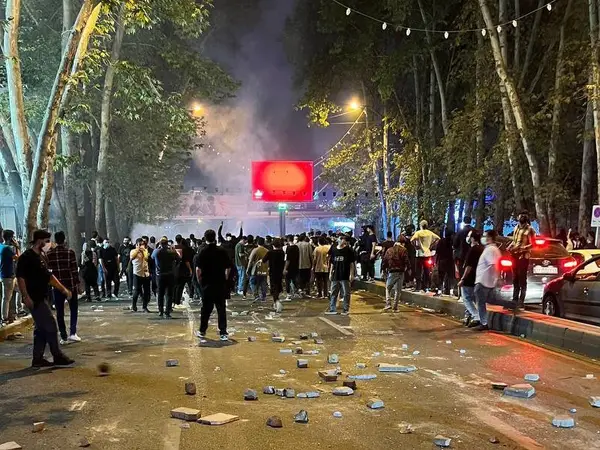While many top officials in Iran are adamant that the protests must be crushed violently, some regime insiders are beginning to explore peaceful alternatives.
This comes while the protesters who take to the streets daily, risking their lives, freedom and property insist that the uprising should continue until the Islamic Republic is toppled.
On Thursday, October 13, the editor of the Islamic Republic newspaper, Masih Mohajeri, wrote in an editorial that "protesters may end the uprising and get closer to state officials if they see that their economic problems are solved and their citizenship rights are respected by those officials."
Without explaining how that would be possible, the editorial stressed that the protesters' demands must be met. Also, without mentioning the government's inefficiency, the editorial pointed out, "There are many individuals in the country who are ready to serve the people, but radical elements have kept them away from the government for various reasons. So, they are isolated, and their capabilities are not used in the management of the country."
Meanwhile, senior cleric, Ayatollah Abdollah Javadi Amoli called on the government "to solve the country's economic problems as everybody issuffering from the painful poverty that is imposed on the people." He further stressed: "There is no whip more painful than poverty." He warned that economic problems will not be solved as long as there are embezzlements and astronomical salaries.”
However, neither Mohajeri, nor Javadi Amoli mentioned that the current government and to a great extent its predecessor were unable to tackle the economic problems which are largely the outcome of counter-productive decisions made by Supreme Leader Ali Khamenei, his hard-line followers and inner circle.
They did not say how can Iran's economic problems be solved without an effective foreign policy that can end the country's international isolation and lift international sanctions that have paralyzed the country's economy. They also ignored the fact that without abiding by international financial regulations banning sponsorship of terrorism and money laundering, the country's economy will not be linked to global markets.
Insiders who give some constructive advice, however, often do not cross the regime’s red line of calling out Khamenei for imposing an anti-US and anti-West foreign policy on the country. They do not say that without coming to terms with the United States, limiting its nuclear program and stripping it of military dimensions, promising not to intervene in the affairs of regional states and stopping ballistic missile development, Iran will have no future.
Individuals such as Javadi Amoli and Mohajeri, regardless of their goodwill, keep forgetting that there is no visible sign in Khamenei's remarks and other officials' statement to respect citizens’ rights. Instead, there are plenty of defiant and arrogant remarks in the daily news from Iran that show neither Khamenei nor any other official has the slightest inclination to respect civil right. Many analysts have noted that their behavior is similar to those who have occupied a country and are exerting pressure on its residents.
Regardless of the severity of Iranians' financial hardship in recent months, not even a single slogan has been chanted in four weeks of uprising calling for improvement in people's livelihood. Instead, nearly all of the slogans chanted point out that what Iranians want is an end to clerical rule and Khamenei's dictatorship.
